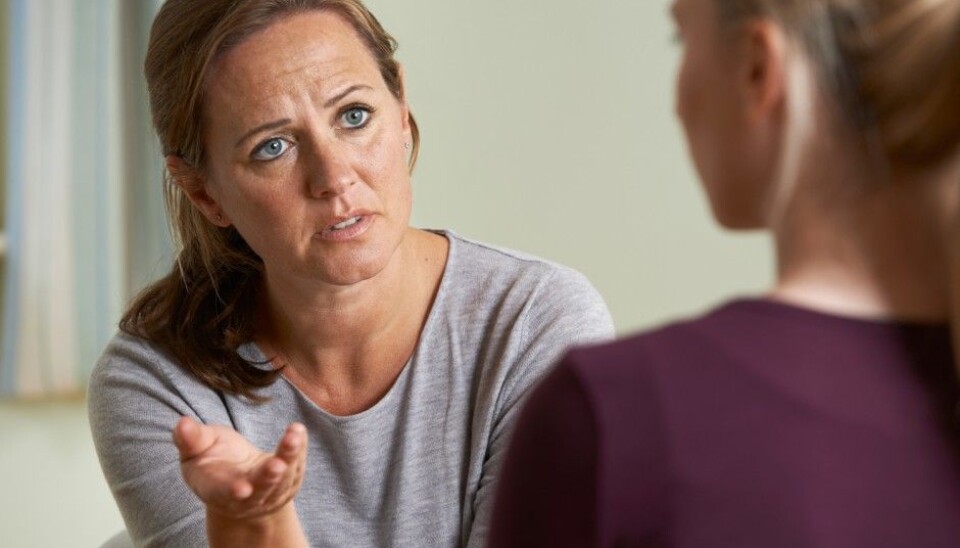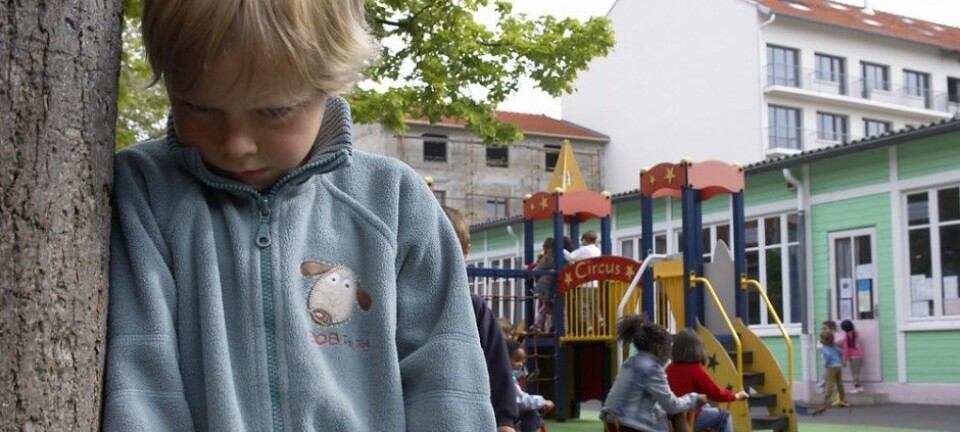
Judgemental families hinder rape survivors in seeking help
Some young persons who have been raped are met with a mix of accusations and shame when they tell their parents about what happened.
Many who are sexually assaulted never contact the police or the health authorities.
Part of the reason is the way their families react to the horrid news, according to a qualitative study involving interviews of persons who were sexually assaulted.
Shame can keep them from seeking help or reporting the crime if their stories are not believed or they hear that the rape was their own fault.
“Their reactions were like, something that shouldn’t have happened, like I was told to go to bed and not tell this to anyone.”
A woman in the study said the above regarding the reaction from her parents after being raped in the late hours of a party. She took responsibility and blame for the situation, deciding she had been naive for allowing herself get into such a situation.
“I kept it entirely inside me, saying nothing to anyone around me. I was told not to reveal a word of this and it was very important for me to obey my mother and father.”
After two years she told a female friend about the incident. That was when she was urged to seek professional help.
The meaning of recognition
Two out of three who fall prey to sexual assaults tell what happened, but it is much more common to tell acquaintances or family than to tell health personnel, according to a study from the Norwegian Centre for Violence and Traumatic Stress Studies, which was based on interviews with over 4,000 Norwegians in 2013.
The first discussions with family, partner, friends or colleagues can be decisive with regard to whether the victim contacts authorities that can provide some help.
“Having your story believed and gaining acceptance for your reaction means a great deal. It lightens the psychological load and makes it easier to seek professional help,” says Lene Østby at VID Specialized University on the web pages of the Norwegian University of Science and Technology’s Trondheim’s Mental Health Research Centre (Napha).
She interviewed eight women and one man in 2011 and spoke with 13 professionals who worked with sex crimes – doctors, nurses, psychologists, social workers and lawyers.
Østby had previously worked with persons who had been sexually assaulted and arrived at the Oslo Emergency Ward and wished to know why some people do not seek help.
Rape myths
In an article published by a the Norwegian mental health work journal “Tidsskrift for psykisk helsearbeid” Østby and Researcher Kari Stefansen at the Oslo and Akershus University College focused on the impact of reactions from the assaulted person’s’ immediate circle of family, friends and acquaintances.
Those interviewed were generally aged 16 to 20 when the abuse or assault occurred. None of them took contact with the social or health services right away. One important reason was that they didn’t realise they had been sexually assaulted. Many felt a responsibility for the attack.
All nine had been assaulted by someone they knew. In two of the cases the perpetrator was their own partner. This did not fit in with their perception of a rape, as the perpetrator was not a stranger and no physical violence was involved.
This myth about what comprises rape can be reinforced by persons they know. All had told someone about the sexual abuse and many feared the reactions they would meet. In several cases they were right about this apprehension. Some of their closest friends and family gave them the cold shoulder, withdrew from them, and some blamed them, the victim.
“It surprised us how significant the one person who believed them was with respect to seeking help. The same can be said about the person who did not believe them with regard to how much shame they were made to feel, and how much responsibility they felt for what occurred,” says Østby according to Napha.
Should think about networks
The researcher thinks that when a person’s immediate circle of friends and family have such a big influence the helpers in social and health services should involve them in follow-ups.
The 13 professionals she spoke to had been very reluctant to do so. In part because they feared the person who was abused would be shunned and shamed by their social and family circle.
Østby and Stefansen think professionals must look into whom the raped persons have confided and what reactions they received. Then they can try to help them in relation to their families and friends. They need to make the sufferers aware that reactions can be negative and help them cope. If these persons lack a personal network of support the option could be group therapy or a support group.
Professionals in the social and health services should also teach friends and families about the support the person’s needs. They might lack knowledge about what comprises a sexual assault.
Safe places
All the participants in the study had received positive support from at least somebody. They listened to them and believed them, gave them information about where they could seek help or took them to a doctor or the police.
“She understood and took it seriously and was very reassuring when hearing about this, and that was good,” said one of the women.
Some who had initially encountered negative responses received more acceptance as time went by.
Some of the molestations had occurred years ago and social perceptions have changed in the duration. However, the few who were interviewed in this study are not numerous enough to provide an answer to how partners or families generally react when they hear of the sexual assault.
Too much sympathy
Unfortunate reactions from their friends and family are not all a question of being rejected. If it takes the wrong direction too much support can be a problem.
Anger and sorrow among one’s loved ones can provide relief for the rape victim. But their sympathetic reactions can take too much of the attention, perhaps as an obsession with the incident, a shame on the family or a desire for revenge. The entire matter can start to be more about the others than the person who needs the help.
When over-eager friends or parents drag the person down to the police to file a complaint this can also be felt as an extra burden. The sufferer lost control during the crime. Now she is losing control once again.
“Being swamped and ordered around after the assault, even when the intentions are good, can contribute to the experience of being rendered incompetent or inadequate, adding to the feeling of lost control,” write the researchers in their article.
-------------------------------------
Read the Norwegian version of this article at forskning.no
Translated by: Glenn Ostling
Scientific links
- Lene Østby and Kari Stefansen: Nettverkets betydning etter seksuelle overgrep. Tidsskrift for psykisk helsearbeid, vol 14, no. 3, 2017. DOI: 10.18261/issn.1504-3010-2017-03-02. Abstract.
- Lene Østby: Hva hindrer utsatte for seksuelle overgrep i å søke hjelp? Innspill til utformingen av en nettportal for overgrepsutsatte. VID Specialized University, report 6/2012.
































